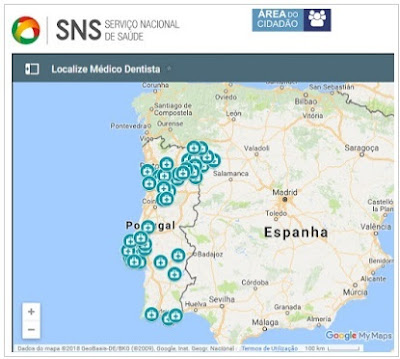Renowned medical dentist is the scientific consultant in the field of dental medicine at Dr. Well's clinics. A conversation about the current moment of dental health in Portugal and the importance of its democratization.
These days, how would you explain the importance of oral health in anyone's life?
I've always had some difficulty understanding why it is that for so many people, the mouth is not part of the body ... I say this in jest because it obviously is. Oral health is indissociable from general health and, moreover, it is inseparable from our happiness and the smile is the maximum expression of it. I believe that the awareness of the Portuguese population about this problem is getting better and, of course, anything that puts people to brush their teeth is good for the population. Obviously in terms of health it is deeply important, but we can not forget the aesthetics, a pleasant smile can change the perception of others about us and can increase self-esteem exponentially, so I am a passionate in this matter.
One of the pillars of his partnership with Dr. Well's, as a scientific consultant in the field of dentistry, is the democratization of access to oral health care. Explain to me a little better what lies behind this concept?
Dr. Well's was born with the goal of democratizing access to quality health services. And knowing that only 5 in 100 Portuguese have the opportunity to put a dental implant, it shows that there are more than we, dentists, could do in the dental medicine industry.
How is the health of the mouth and teeth of the Portuguese?
The health of the mouth of the Portuguese should be seen by segments. I would say the children's is great, because fortunately parents have already learned and are more concerned about washing children's teeth, which is great because future generations will have more oral health. Obviously, the same can not be said of people between the ages of 60 and 100 because they unfortunately lived in an age where there were not many skilled dentists in the country and consequently there are a large percentage of them toothless and unable to afford to even think about rehabilitate your smile. Between these two segments of the population, there is a bit of everything, depending on economic ability and level of education. Obviously you can not generalize because I have experience of well-trained and economically capable people who have had the misfortune of not being well followed by your dentist and have to end up doing very costly and time consuming treatments to regain your smile.
If you were Minister of Health, what are the first steps you would take in the area of oral health in the country?
If I were health minister I would first go around the country to listen to health professionals and technicians, from north to south, to try to understand the difficulties they have. Nonetheless, I think that in terms of dentistry it would put a compulsory school program, a little like what is done in the Nordic countries, and make sure that the population, especially the most deprived, does regular oral hygiene and screening caries and early treatment. I have always found it strange that our taxes are not applied in this aspect of simpler dental medicine and I understand that it is something that should be a right of citizens.
And aesthetic medicine: is it a branch that has definitely entered the day to day of people or is it something reserved only to those who have the means to do so?
Dental medicine is one of the few medical areas that has an absolute 'crossover' between aesthetics and health. I usually say that a beautiful smile is the reflection or mirror of a healthy smile. So the first step to having a beautiful and aesthetic smile is to have it healthy. As such, people can not expect incredible aesthetic results if they do not have the functional and biologically sound part.









